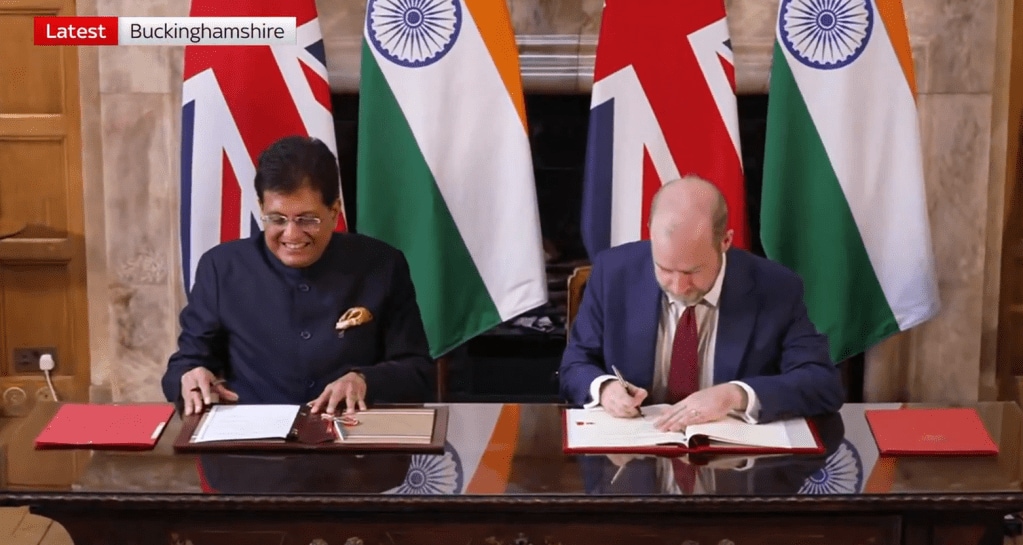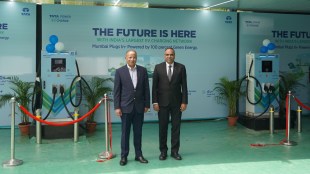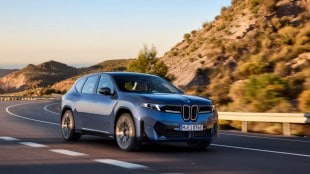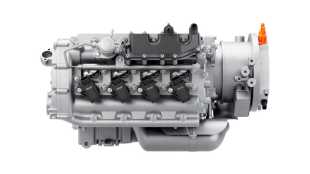The deal is on, as India and the UK have officially signed the Free Trade Agreement (FTA). This is a significant move that will strengthen the economic ties between the two countries, while it is good news for the automotive sector and enthusiasts alike, as it will make British cars cheaper in India by almost 50 percent.
India-UK FTA: How will British carmakers benefit in India?
Currently, Rolls-Royce, Bentley, Jaguar, Land Rover, and McLaren sell their vehicles in India, and with the FTA signed, these cars will see a massive drop in price, almost 50 percent. For example, the McLaren 750S, carries a price of almost Rs 6 crore, and with the new rules, it is likely to cost around Rs 3 crore, ex-showroom.
The same is the case for brands such as Rolls-Royce, as its flagship model, the Phantom, costs Rs 9.5 crore ex-showroom. With the FTA, the car can cost half the price. Jaguar and Land Rover will also benefit big from the FTA, and speaking on this, A spokesperson for JLR said: “We welcome this free trade agreement between the UK and India, which over time will deliver reduced tariff access to the Indian car market for JLR’s luxury vehicles. India is an important market for our British built products and represents significant future growth opportunities.”
Motorcycle maker Triumph will also benefit from this FTA, as it sells its entire lineup in India. This is good news for enthusiasts as the motorcycles will see a drop in price.
India-UK FTA: How will domestic carmakers benefit?
The FTA is also a boon to domestic carmakers such as Tata Motors and Mahindra, as the latter is planning its foray into the European market. Maruti Suzuki is already selling the eVitara in the UK, and Tata Motors will also have leverage in the UK. Cars such as the Harrier EV and the Mahindra BE 6 and XEV have the capabilities to compete with global carmakers in Europe, and the FTA will help with competitive pricing.
Dr Anish Shah, Group CEO and MD, Mahindra Group, says, “The landmark trade agreement between India and the UK marks a transformative moment in the global economic landscape. It’s not just a win for trade, but a blueprint for a modern, values-led partnership that puts innovation, sustainability, and inclusive growth at the heart of global collaboration.
At Mahindra, we believe deeply in the power of such cross-border partnerships to unlock economic potential, create high-quality jobs, and accelerate progress in future-facing sectors from green mobility and clean energy to digital technologies and advanced manufacturing.
The UK-India Vision 2035 aligns closely with our own strategic priorities, building resilient supply chains, investing in frontier technologies, and fostering a just transition to a low-carbon economy. As Indian industry becomes increasingly global in its footprint and ambition, we look forward to contributing meaningfully to this next chapter of UK-India cooperation.
This deal is also a testament to the growing stature of India as a trusted partner and innovation powerhouse in the global order. We commend both governments for their bold leadership in charting a shared future rooted in prosperity, sustainability, and trust.”
The Automotive Component Manufacturers Association of India (ACMA), was also pleased with the announcement, and in a statement, said, “ACMA welcomes the signing of the India UK Comprehensive Trade Agreement as a landmark development in the bilateral relationship between the two nations. This agreement is poised to usher in a new era of economic cooperation, fostering greater market access, technology partnerships, and value chain integration between the Indian and British automotive industries.
The CETA is expected to benefit the Indian auto component sector through enhanced opportunities for exports, streamlined regulatory processes, particularly in key areas such as electric mobility, precision engineering, and lightweight materials. Indian MSMEs, which form the backbone of our industry, stand to gain from the liberalized terms of trade and improved access to UK markets.
We are hopeful that the agreement will also promote collaboration in R&D, skilling, and innovation, especially in green and digital technologies—areas that are crucial for our sector’s long-term competitiveness and sustainability.
ACMA congratulates the Government of India and the United Kingdom for their vision and commitment in bringing this agreement to fruition. We look forward to working with our counterparts in the UK to realize the full potential of this partnership, and to strengthen our collective contribution to global automotive value chains.”
Gaurav Vangaal — Associate Director, Light Vehicle Production Forecasting, Indian Subcontinent, says, “The India–UK FTA could unlock transformative potential across the automotive sector. Consumers can gain broader access to luxury marques such as JLR and Aston Martin at significantly reduced price points.
Indian OEMs—Tata Motors, Mahindra, and Suzuki—could benefit from tariff-free EV exports, while suppliers can seize opportunities through component exports, enhancing global competitiveness. Simultaneously, UK automakers can tap into India’s rapidly expanding luxury car market and resilient supply ecosystems.
The agreement could accelerate EV trade. If signed, it would not only reshape bilateral automotive trade but also mark a historic moment for India as it selectively liberalizes import duties within its auto market.”
TVS’ R Dinesh, Chairman, TVS Supply Chain Solutions says, “I extend my heartfelt congratulations to the Hon’ble Prime Minister of India on the signing of the India–UK Free Trade Agreement. This landmark deal paves the way for a new era of economic cooperation between two vibrant economies. As a company with a strong presence in both India and the UK, we at TVS Supply Chain Solutions see this FTA as a strategic enabler.
It will help streamline trade flows, reduce operational friction, and accelerate our ability to deliver cost-effective, agile solutions to global customers. With our strong presence in the UK and India , the agreement further strengthens our position in a critical market while opening new doors for cross-border collaboration, investment, and innovation.”
Now, with the official signing done, the agreement needs the endorsement of the British Parliament, which will take about a year, as per what PTI reports.




















